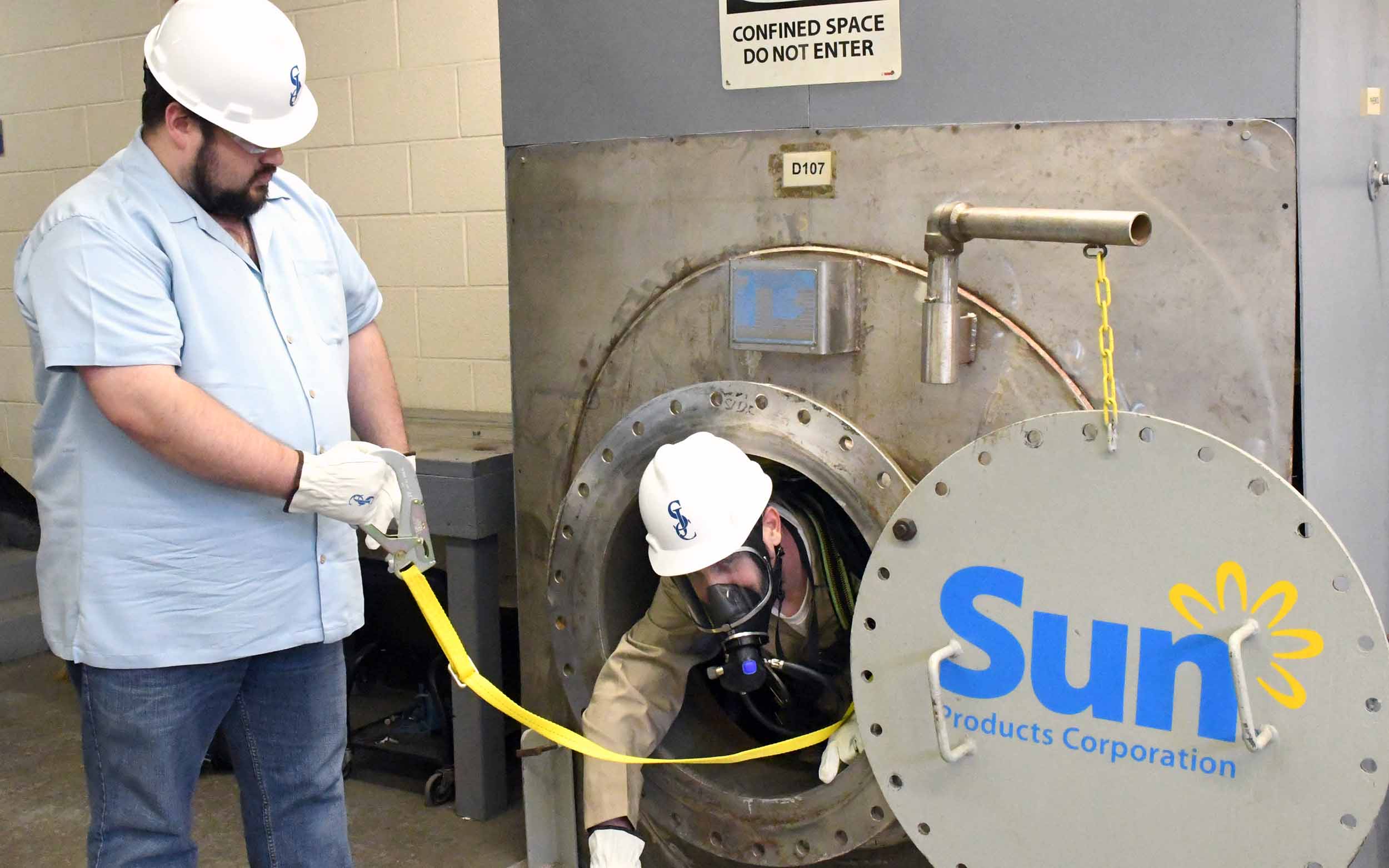Environmental Health and Safety: A Commitment to Sustainable Growth


What makes a company send its employees overseas for training? For Saudi Aramco’s Ras Tanura Refinery, it was the opportunity to move them from operations to team management with some of the best training in the world.
International student Abdulaziz Albabtain is one of three employees Ras Tanura Refinery sent to San Jacinto College’s LyondellBasell Center for Petrochemical, Energy, & Technology to train in the environmental health and safety field. The center is at the forefront of training future environmental health and safety professionals. This program promotes sustainable practices, workplace safety, and regulatory compliance across diverse industries.
“I’ve worked for Saudi Aramco for 13 years, including a few months as a safety advisor, before coming to San Jac,” Albabtain said. “Although I had experience, I’ve gained so much more here. I was the first from my refinery to study at San Jac and will graduate next semester. When I return, I’ll be the safety team supervisor.”
The program gives students the knowledge and to manage environmental risks in private and public sectors, addressing the growing demand for environmentally responsible and safety-conscious professionals.
At San Jac, we’re committed to advancing our environmental health and safety program to meet the evolving demands of fields like construction, petrochemicals, and healthcare. Our curriculum is crafted to reflect the real-world needs of operations and maintenance, ensuring that students acquire relevant, practical skills that lead directly to job opportunities. Our industry partnerships provide networking and hands-on experience, giving graduates a competitive edge.
The curriculum combines theory with strong experiential learning. Students engage in laboratory exercises, fieldwork, and simulations that replicate scenarios they’ll encounter in their careers. This practical approach ensures graduates are well-prepared, with a solid grounding in industrial practices, environmental and safety regulations, and current EHS issues.
“Safety management is a constantly evolving field,” said G.C. Shah, process technology professor. “Often students are former nurses or operators, but I work with students of all backgrounds to close knowledge gaps and master essential safety topics like confined space entry and fall prevention. Success in this industry requires attention to detail, teamwork, and a commitment to ongoing learning — qualities we foster in our students.”

The program’s partnerships with local industries further enhance its value, providing students with networking opportunities that bridge academic knowledge and practical application.
San Jac is a preferred training site for the Texas Commission on Environmental Quality and for companies preparing to become Voluntary Protection Program Star Sites, thanks to its high-quality facilities. In addition to EHS training, the LyondellBasell Center for Petrochemical, Energy, & Technology offers degree programs in process technology, instrumentation, electrical, and inspection technology. The building includes 35 specialized labs and an 8,000-square-foot outdoor glycol process unit, all used to support degree programs and provide training for current industry workers based on the specific needs and goals of the field.
As organizations prioritize sustainability and regulatory compliance, the demand for skilled environmental health and safety professionals grows.
Graduates may work as environmental health officers, safety managers, industrial hygienists, and compliance officers. The program also encourages students to pursue additional certifications, such as Certified Safety Professional or Certified Industrial Hygienist. Dickerson is also working to create a transfer pathway from the associate degree to the University of Houston-Clear Lake occupational safety and health bachelor’s degree, further enhancing graduates’ career prospects.
Learn more about the environmental health and safety program
